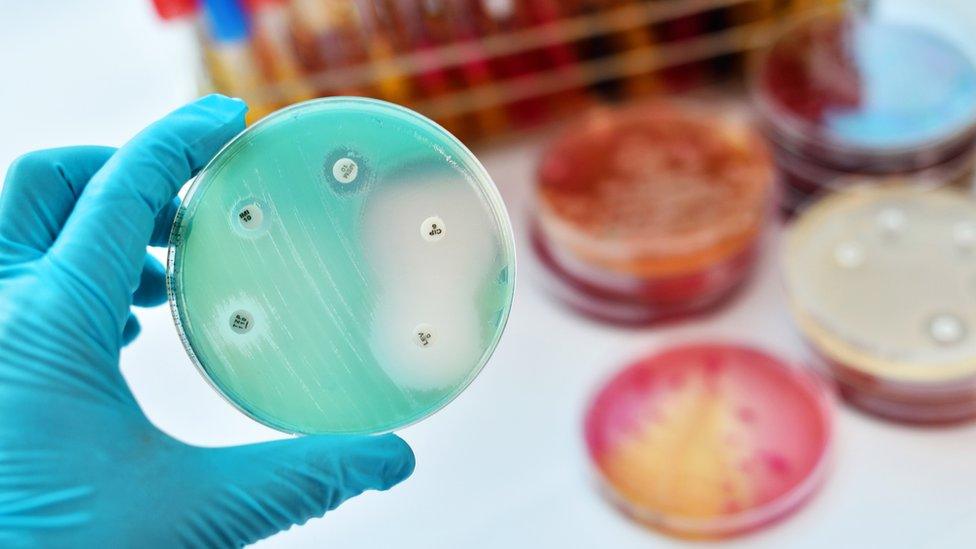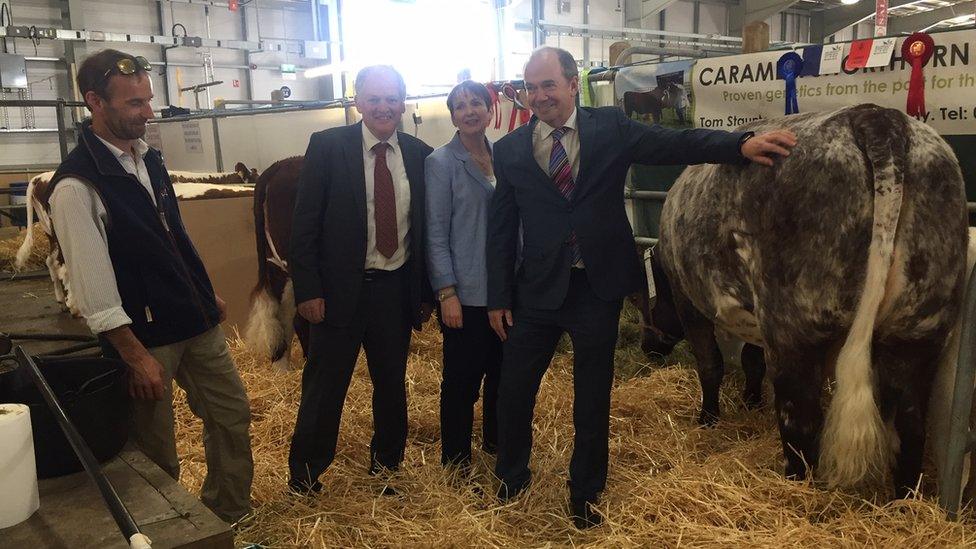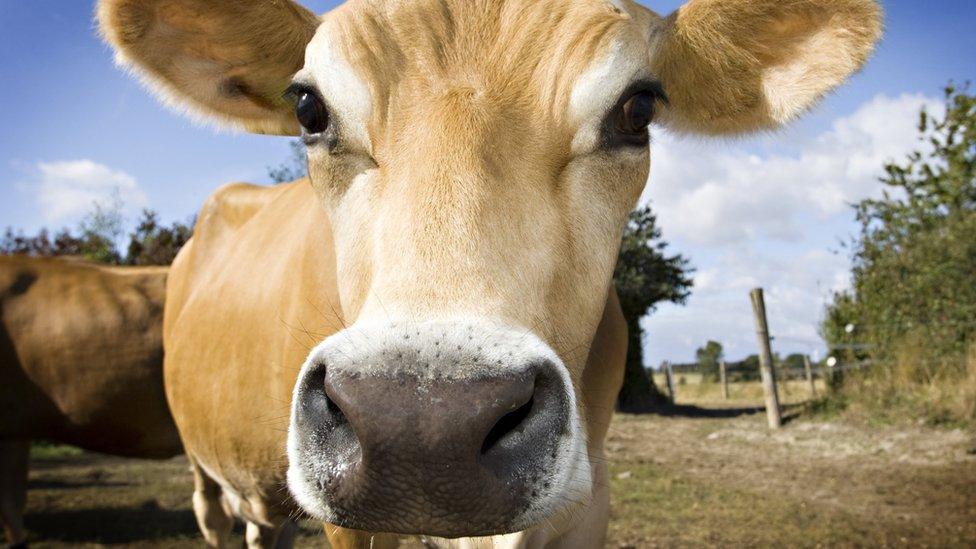Bid to reduce antibiotics use in humans and animals
- Published

A renewed drive to encourage responsible use of antibiotics in humans and animals has been launched.
It aims to tackle the problem of antimicrobial resistance, where superbugs become immune to the drugs.
The spread of the problem is caused by overuse and inappropriate use of the medicines.
And now two government departments are renewing their efforts to tackle the issue.
The plan has been launched at the Balmoral Show by officials from the Health and Agriculture departments.
The Foods Standards Agency is also involved.

Chief Vet Robert Huey, Food Standards Agency Director Maria Jennings and Chief Medical Officer Michael McBride launch the new five-year plan to tackle AMR
In the agricultural sector the plan is to move to a more preventative model, improving farm biosecurity and vaccination programmes.
In human health doctors will be asked to prescribe 25% fewer antibiotics and offer alternatives where appropriate.
Chief Medical Officer Dr Michael McBride said certain antibiotics losing their ability to kill some strains of microbe could become a major issue.
"If we cannot develop new drugs that beat those bugs then by the year 2050 we can expect about 10m deaths per year from drug-resistant infections."
He said the drugs were used daily in routine procedures and if they did not work those operations would no longer be safe.

Chief Vet Robert Huey said resistance to veterinary medicines would not only affect animal and human health but could potentially impact trade too.
Reducing the use of antibiotics in both humans and animals is one of the best ways of addressing the issue.
The risk of transfer of drug resistant strains of disease from animals to humans can occur in several ways.
'Drugs prescribed without animals being seen'
These include direct transfer; the excretion of superbugs by animals into the wider environment, and through the production and consumption of food.
This is the second five-year plan to address anti-microbial resistance.
The last one ran to 2018 and focused on improving infection prevention and increasing awareness.
Recently it was announced that 12,000 farmers would be offered training in the use of veterinary medicine.
Mr Huey has previously raised concerns about certain practices amongst some vets including drugs being prescribed without the animals being seen.
- Published27 November 2011
- Published24 January 2019
